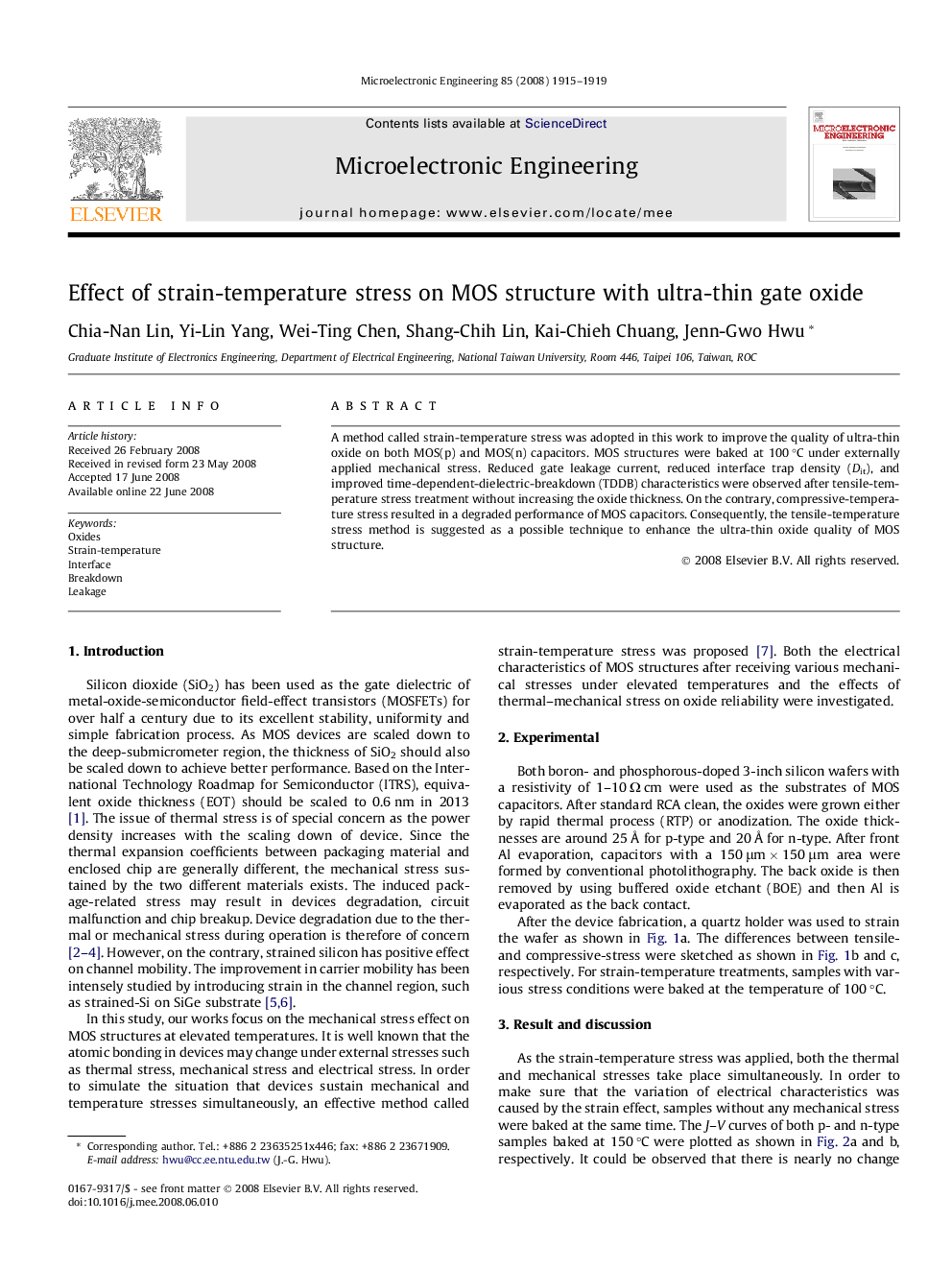| Article ID | Journal | Published Year | Pages | File Type |
|---|---|---|---|---|
| 540746 | Microelectronic Engineering | 2008 | 5 Pages |
Abstract
A method called strain-temperature stress was adopted in this work to improve the quality of ultra-thin oxide on both MOS(p) and MOS(n) capacitors. MOS structures were baked at 100 °C under externally applied mechanical stress. Reduced gate leakage current, reduced interface trap density (Dit), and improved time-dependent-dielectric-breakdown (TDDB) characteristics were observed after tensile-temperature stress treatment without increasing the oxide thickness. On the contrary, compressive-temperature stress resulted in a degraded performance of MOS capacitors. Consequently, the tensile-temperature stress method is suggested as a possible technique to enhance the ultra-thin oxide quality of MOS structure.
Related Topics
Physical Sciences and Engineering
Computer Science
Hardware and Architecture
Authors
Chia-Nan Lin, Yi-Lin Yang, Wei-Ting Chen, Shang-Chih Lin, Kai-Chieh Chuang, Jenn-Gwo Hwu,
